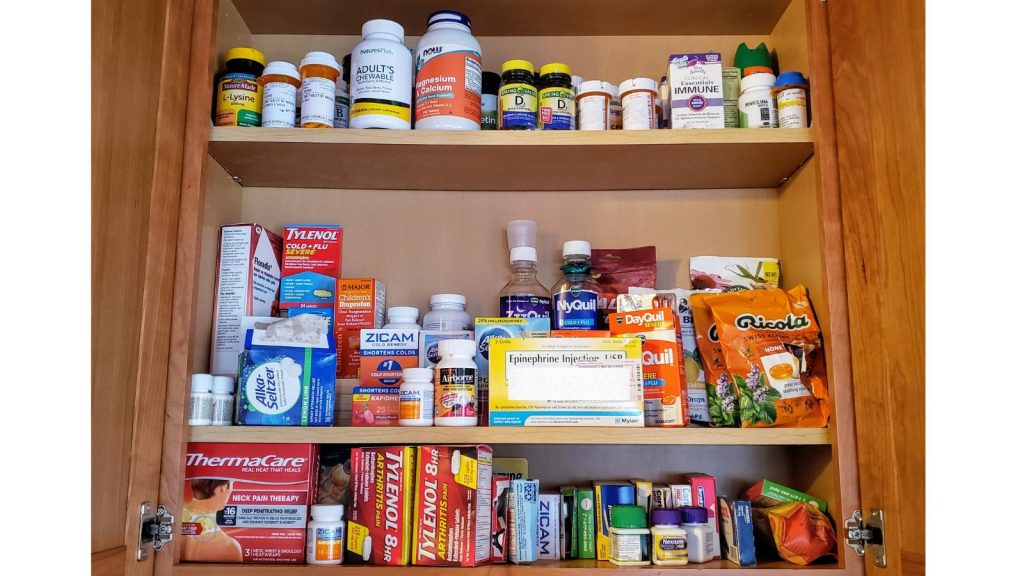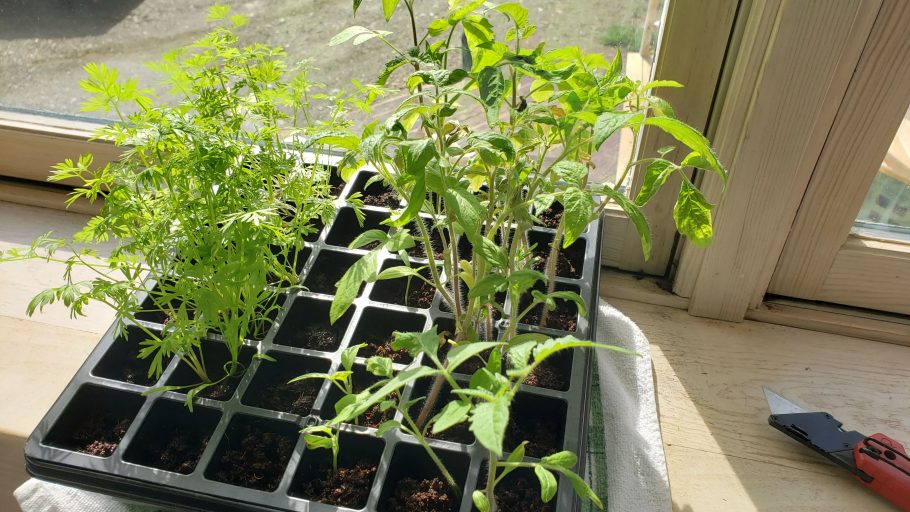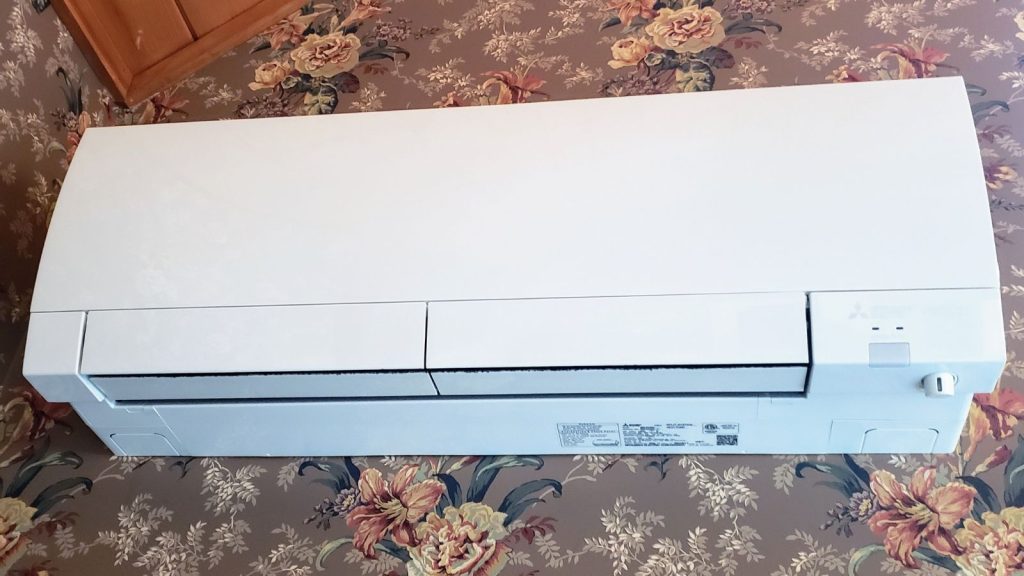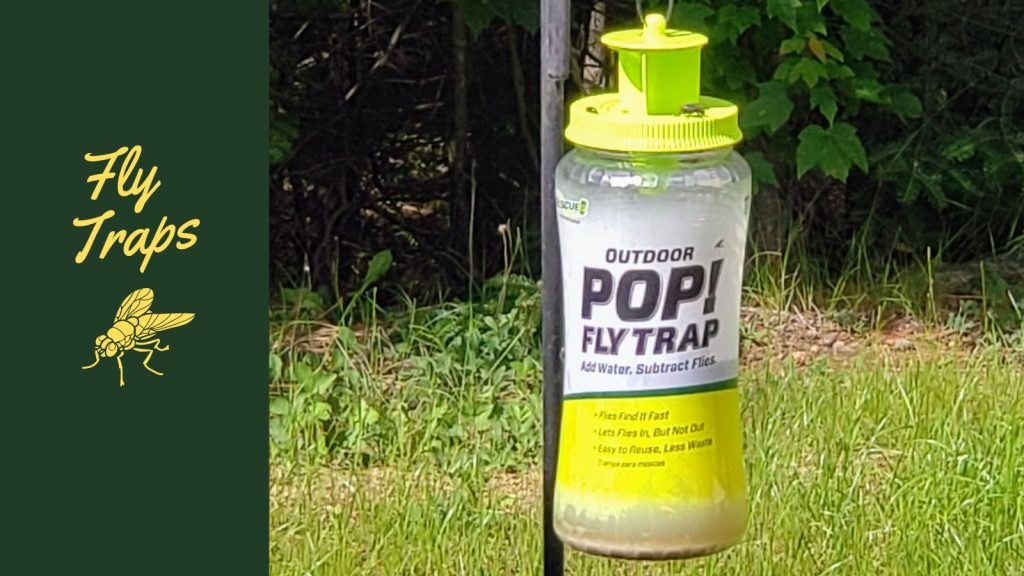Emergencies can strike when you least expect them, especially in rural areas where access to immediate help may be limited. Being prepared with the right supplies is crucial for ensuring safety and security in such situations.
Studies show that rural areas are particularly vulnerable during crises, emphasizing the necessity of being equipped with essential emergency supplies.
From power outages to severe weather events, rural living can present unique challenges that require specific preparedness measures. In this post, I will explore the top 10 must-have emergency supplies for rural living, aiming to arm you with the knowledge and tools needed to navigate unexpected circumstances effectively.
Whether you’re a homesteader, a farmer, or enjoy the peace of rural life, having the right emergency supplies can make all the difference in times of need. We live in an area where there is no pharmacy for an hour, and no medical facilities are open on the weekend.
Stay tuned as I explore key items that can help you stay safe and secure in emergencies, regardless of your location.
Water Supply
Water is a vital resource for rural living, especially in emergencies. Access to clean water is essential for survival.
Here are some must-have emergency supplies for ensuring a reliable water supply in rural areas:
Water Storage Containers:
When it comes to storing water in rural areas, having the proper containers is essential. Consider investing in durable containers such as food-grade plastic drums, water barrels, or water tanks.
These containers should be easy to clean and maintain, ensuring that your water stays safe to consume during emergencies.
Water Purification Tablets or Filters:
In rural settings, access to clean water may be limited during emergencies. Water purification tablets or filters can help make contaminated water safe to drink. Consider keeping emergency water purification tablets or a portable water filter in your supply kit.
Products like LifeStraw or Aquatabs are effective options to remove harmful bacteria and protozoa from water sources.
Ensuring a reliable water supply is key to preparedness in rural living. By having the proper water storage containers and purification methods, you can stay hydrated and healthy during unexpected situations.
Remember, water is life, so always have a plan to secure your water source in emergencies.
Food Stockpile Emergency Supplies
When it comes to preparing for emergencies in rural areas, having a well-stocked food supply is crucial. Ensuring you have enough food to sustain yourself and your family during an emergency can provide a sense of security and peace of mind.
In rural living, access to stores can be limited, making it essential to have a stockpile of basic food items that can last for an extended period.
Non-Perishable Food Items
Stocking up on non-perishable foods is key to building a reliable emergency food supply. Here are some examples of non-perishable foods suitable for long-term storage in rural environments:
- Canned beans and vegetables: These are nutritious and versatile, providing essential vitamins and minerals.
- Rice and pasta: High in carbohydrates and easy to prepare, rice and pasta can serve as a filling base for meals.
- Dried fruits and nuts: A great source of energy and nutrients, these snacks are perfect for enjoying on the go.
- Oatmeal and cereal: These breakfast staples offer a quick and nutritious meal option.
Canned Goods and Ready-to-Eat Meals
In addition to non-perishable staples, having a supply of canned goods and ready-to-eat meals can be incredibly convenient during emergencies. Consider including the following in your emergency food stockpile:
- Canned soups and stews: These hearty options require minimal preparation, providing warmth and comfort.
- Canned meats (tuna, chicken): Excellent sources of protein that can be easily incorporated into various dishes.
- Ready-to-eat pasta meals: Convenience meets nutrition with quick pasta options that only require heating.
- Energy bars and meal replacement shakes: Perfect for on-the-go sustenance or when cooking facilities are limited.
By incorporating a variety of non-perishable food items and canned goods into your emergency food stockpile, you can ensure that you and your loved ones are well-prepared for any unexpected situation that may arise in a rural setting.
Grow Your Food
Growing your own food in rural areas is a rewarding way to ensure you and your family have fresh, healthy produce. With effort and know-how, you can enjoy the satisfaction of harvesting your fruits and vegetables right from your backyard.
By taking control of your food supply, you not only save money but also make it easier to pick your vegetables and fruits. Plus, cultivating your garden can deepen your connection to the food you eat, fostering a sense of self-sufficiency and well-being.
So roll up your sleeves, grab your gardening tools, and start planting your way to a more sustainable lifestyle on your land today.
First Aid Kit
Having a well-equipped first-aid kit is essential for handling emergencies in rural settings. When medical help may be far away, a properly stocked kit can make a significant difference in providing immediate care.
Let’s examine the essential components of a comprehensive first aid kit tailored for rural settings.
Bandages, Antiseptics, and Medications
Bandages, antiseptics, and medications form the core of any first aid kit. In rural areas where access to medical facilities is limited, having a variety of bandages of different sizes, adhesive tape, antiseptic wipes, and a selection of common medications is crucial.
Ensure your kit includes sterile gauze pads, adhesive bandages, and antiseptic solutions like hydrogen peroxide or alcohol wipes to clean wounds effectively.
Including essential medications such as pain relievers, antihistamines, and anti-inflammatory drugs can help manage common health issues until professional medical help is available.
Emergency Blankets and Heat Packs
Emergency blankets and heat packs are invaluable items in a rural first aid kit, particularly during extreme weather conditions or when treating hypothermia. Emergency blankets, also known as space blankets, are lightweight and compact, providing insulation that helps retain body heat.
In colder weather, instant heat packs can be used to warm individuals who have been exposed to colder temperatures. Look for products that are portable, easy to use, and designed to retain heat effectively in emergencies.
In rural areas where quick access to medical assistance can be challenging, a well-prepared first-aid kit can be a lifesaver.
By including a range of bandages, antiseptics, medications, emergency blankets, and heat packs, you can be better equipped to handle unexpected emergencies and ensure your own and others’ well-being in rural settings.
We had to make a trip to the ER yesterday as my husband’s cut became infected and all swollen. We would love to have one of these cabinets to store our medical emergency supplies in.
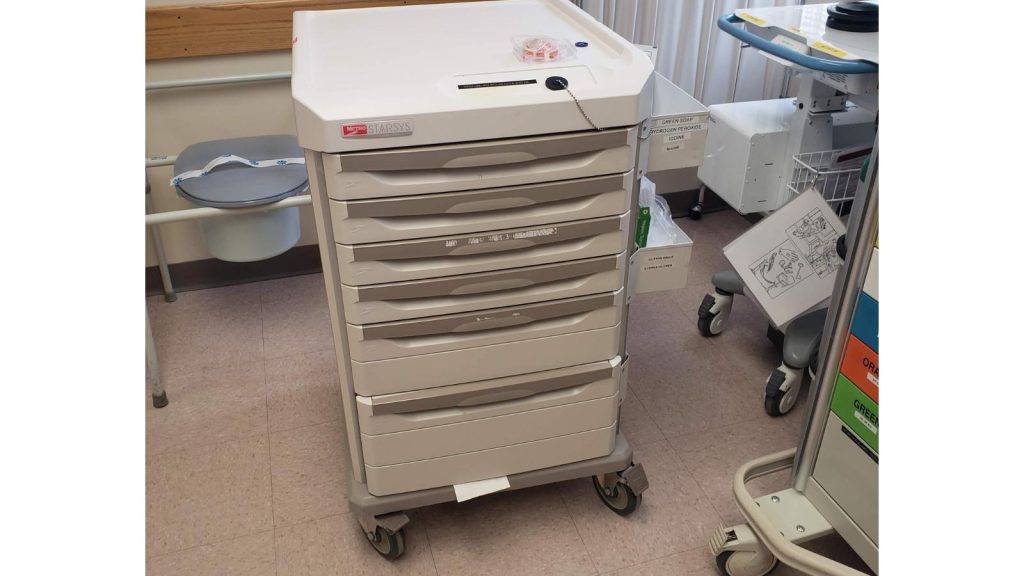
Lighting and Communication
In emergencies, reliable lighting and communication tools are essential in rural areas where power outages can be prolonged. Let’s explore some must-have supplies for lighting and staying informed during crises.
Flashlights, Batteries, and Lanterns
When the power goes out, durable, long-lasting lighting sources are crucial. Opt for LED flashlights that are energy-efficient and provide bright illumination.
Keep a stock of extra batteries and store them in a cool, dry place to maintain their charge. Lanterns can also be valuable for lighting larger areas, so consider investing in solar- or battery-powered lanterns for extended use during emergencies.
Portable Radio or Hand-Crank Emergency Radio
Staying informed during emergencies is paramount, especially in rural settings where communication can be challenging. A portable radio or a hand-crank emergency radio can be a lifesaver in such situations. Look for radios that can tune into local emergency broadcasts and weather updates.
Hand-crank radios are handy as they don’t rely on batteries and can be powered manually, making them ideal for off-grid scenarios.
In times of crisis, having reliable lighting sources and communication devices can provide a sense of security and help you stay connected with the outside world.
Be prepared with these essential supplies to navigate through emergencies effectively.
Tools and Supplies For Emergency Supplies
In a rural setting, where help can be miles away, having the right tools and supplies at hand can make all the difference in handling emergencies effectively. Let’s explore some essential items that can be real game-changers for rural living.
Multi-Tool, Duct Tape, and Rope
Picture this: you’re faced with a broken fence, a leaking pipe, or a loose hinge. What do you do? This is where the trusty multi-tool comes into play—a versatile gadget that combines various functions in one handy package, making it a must-have for your emergency supply kit.
With a multi-tool in your pocket, you have a cutting-edge tool, screwdriver, pliers, and more right at your fingertips. Pair this with the incredible utility of duct tape—a true hero in emergency fixes. From patching up a tear to securing loose items, duct tape is the go-to solution when things fall apart.
And let’s not forget the humble rope – a simple yet powerful tool that can be used for everything from building shelters to towing heavy loads. When these three essentials are in your emergency kit, you’re prepared for whatever challenges rural living throws your way.
Portable Generator and Fuel
When the power goes out in rural areas, it can be more than just an inconvenience – it can be a safety hazard. That’s where a portable generator comes in handy. A portable generator can provide backup power to keep essential devices running during emergencies, ensuring you stay connected and safe.
However, a generator is only as good as the fuel it runs on. Storing an adequate supply of fuel is crucial in rural areas, where refueling stations may be scarce. Having a stockpile of fuel ensures your generator can keep running when you need it most.
So, when the lights go out, you can rely on your trusty generator to keep things running smoothly.
In rural areas, being prepared is not just a suggestion – it’s a way of life. By arming yourself with essentials like multi-tools, duct tape, rope, portable generators, and fuel, you’re not just surviving; you’re thriving in emergencies.
Clothing and Personal Items For Emergency Supplies
Living in a rural area means being prepared for any situation that may arise. When it comes to emergency preparedness, having the proper clothing and personal items can make all the difference.
Let’s explore the essential items to include in your emergency kit for rural living.
You may need to order much of your clothing online, as some rural areas lack stores that cater to the entire family.
Seasonal Clothing and Sturdy Footwear
In rural areas, the weather can be unpredictable, making it crucial to have the appropriate seasonal clothing on hand in case of emergencies. Whether it’s heavy snow in winter or scorching heat in summer, the right attire can keep you safe and comfortable. Invest in high-quality outerwear, including waterproof jackets, insulated pants, and sturdy boots.
Layering your clothing can provide versatility as temperatures fluctuate.
When it comes to footwear, opt for durable boots with good traction to navigate the rough terrains commonly found in rural areas. Sturdy footwear not only protects your feet but also provides stability and support during emergencies.
Remember, comfort and functionality should be top priorities when selecting footwear for your emergency kit.
Personal Hygiene Products and Prescription Medications
Maintaining good personal hygiene is essential, especially during emergencies when access to basic amenities may be limited. Include personal hygiene products like toothbrushes, toothpaste, soap, hand sanitizer, and feminine hygiene products in your emergency kit. These items can help you stay clean and prevent the spread of germs, protecting your health.
Additionally, don’t forget to pack a supply of prescription medications if you or any family members require them. Ensure you have an ample supply to last during unexpected disruptions.
This happened to me last year, and I ended up feeling lousy for weeks. The roads were closed for days due to the big storm, and we had no way out of town to reach the pharmacy, which was an hour away.
Additionally, there were no deliveries to the post office. A few weeks prior, our local towns were in lockdown due to a murder suspect.
Keeping medications in a waterproof container with clear labels can help you stay organized and easily accessible in times of need.
By including these essentials in your emergency kit, you can ensure you’re equipped to handle whatever challenges come your way in a rural environment.
Essential Documents and Cash Reserve For Emergency Supplies
When it comes to rural living, safeguarding your important documents and having a cash reserve is essential for preparedness.
In rural areas where access to services can be limited during emergencies, having your documents in order and a financial buffer can make a significant difference in navigating unexpected situations.
Waterproof Document Storage and Emergency Cash
In rural settings, the elements can be unpredictable, making it crucial to protect your essential documents from water damage. Invest in a waterproof, fireproof safe to store documents such as identification papers, insurance policies, property deeds, and other critical paperwork.
Consider keeping digital copies of these documents on a secure cloud storage platform as an additional layer of protection.
Maintaining an emergency cash fund is equally essential. In rural areas, ATMs may not be readily available during emergencies, so it’s advisable to keep cash on hand. Keep a reserve of cash in a secure, discreet location within your home.
Periodically assess and replenish this emergency fund to account for inflation and changing financial needs.
In times of crisis, having access to essential documents and emergency cash can provide a sense of security and facilitate a smoother recovery process. By taking proactive steps to safeguard these assets, you can better protect yourself and your loved ones in rural living environments.
Safety and Protection Emergency Supplies
Living in rural areas presents its own set of challenges, particularly in terms of safety and emergency preparedness. Ensuring you have the right supplies can make a significant difference in safeguarding your home and loved ones.
Let’s explore some essential safety and protection measures for rural living.
Fire Extinguisher and Smoke Alarms
Fire Extinguisher: One of the most crucial emergency supplies for fire safety is a fire extinguisher. In rural settings where emergency response times may be longer, having a fire extinguisher readily available can help contain small fires before they escalate and spread.
Ensure you have the correct type of extinguisher for your home’s specific needs, and that it is inspected regularly to maintain its functionality.
Smoke Alarms: Smoke alarms are essential in alerting you to potential fires, giving you and your family valuable time to evacuate safely. In rural areas, where trees and vegetation often surround homes, the risk of wildfire is higher. Installing interconnected smoke alarms throughout your home can provide early detection and vital warnings in case of a fire.
Personal Defense Items for Emergency Supplies
Flashlights and Whistles: In emergencies, visibility and signaling for help are crucial. Keep flashlights with fresh batteries in easily accessible places around your home.
Whistles in your emergency supplies can be effective for signaling for assistance over long distances, especially in rural areas where neighbors may be further away. I carry one when I go hiking and walking.
Pepper Spray or Bear Spray: In rural settings, encounters with wildlife or unexpected visitors are more common. Having pepper or bear spray can serve as a non-lethal self-defense option.
Ensure you are properly trained in using these items and keep them within easy reach in case of an emergency.
Self-Defense Training: Investing in self-defense training can equip you with the skills and confidence to protect yourself and your loved ones in emergencies. Basic techniques can go a long way in enhancing your safety and security in rural living environments.
By prioritizing safety and protection measures tailored to rural living, you can better equip yourself to handle emergencies with confidence and preparedness.
Stay proactive and ensure your emergency supplies include items that address the unique challenges of rural life.
Last But Not Least, Don’t Forget Your Pets’ Emergency Supplies
Ensure you’ve all your pet supplies on hand for those times when you can’t make it to the store.
Stock up on essentials like food, litter, and medication so you’re always prepared. Keep a stash of toys and treats to keep your furry friends entertained and happy. That was another issue for us, as the vet was an hour away and the roads in that direction were closed for weeks.

Luckily, we were able to have meds shipped before our dog died.
Having everything you need at home will save you from last-minute trips and ensure your pets are well cared for, no matter what.
Conclusion of Emergency Supplies
In conclusion, preparing for emergencies in rural living is not just a choice but a necessity. The 10 must-have emergency supplies highlighted in this article serve as lifelines during unpredictable situations.
From first aid kits to non-perishable food items, each item plays a crucial role in ensuring your safety and well-being when help is miles away.
Remember, being proactive in stocking up on these essentials can make all the difference in the face of adversity. Stay prepared to stay safe.
